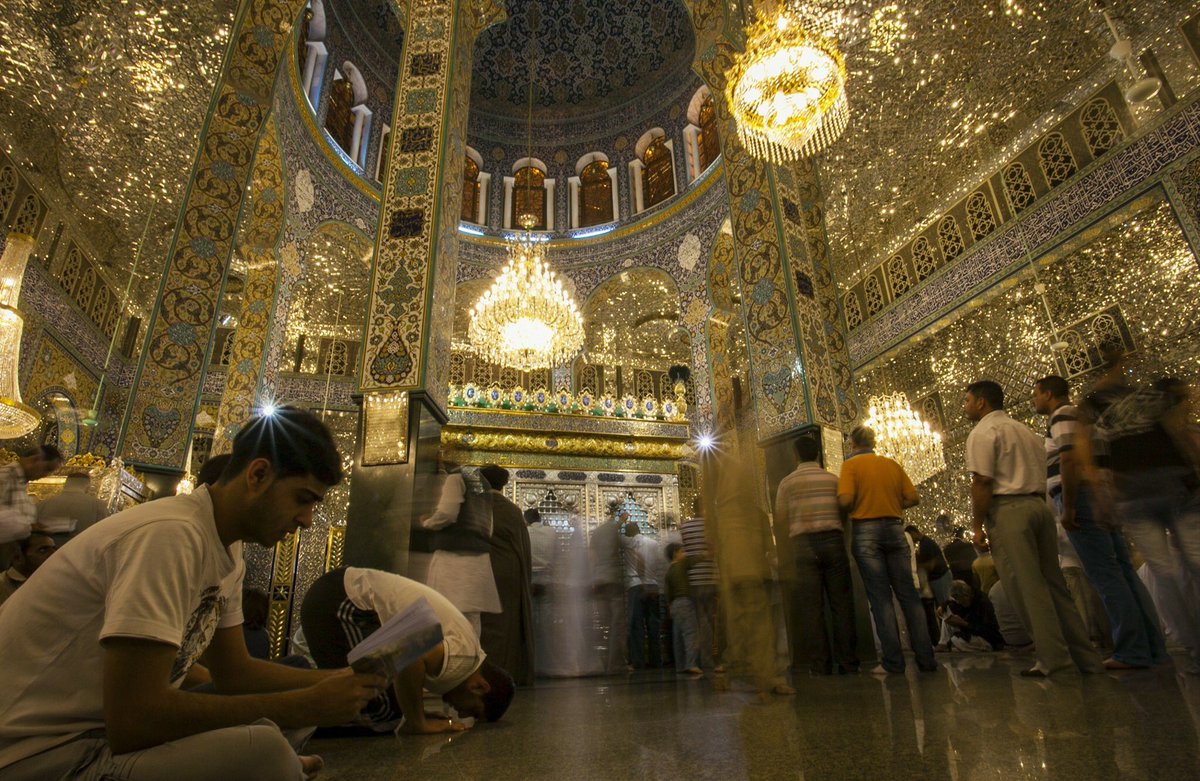Martyrdom of Imam Ali (A.S.)
On the night before Friday the 19th of Ramadan in the fortieth year after hijrah, Imam Ali (A.S.) went to the central mosque for prayers. Shortly after the adhan (call to prayer), Zaynab (A.S.) heard a heart-rending cry. Soon the cries came nearer to her house and she realised that they were bringing her the news of her father’s assassination. Ibn Muljim had struck Imam Ali (A.S.) a fatal blow while he was in the defenceless state of sajdah (devotional prostration). Mortally wounded, he was carried back home on the shoulders of his followers.
According to an article by Pakistan.shafaqna.com, there was to be no recovery from this wound. On the twenty-first night of Ramadan Imam Ali (A.S.) died, leaving his two sons and daughter to witness and face his enemies’ misguided lust for power and revenge.After his father’s soul was released, Imam Hasan (A.S.) said, “Tonight such a great man has died with whose good conduct no one in the past or the future can compare. He fought holy wars side by side with the Holy Prophet, and made his life a shield for him. The Prophet used to make him a standard-bearer of the army while the angels Jibra’il walked on his right and Mika’il on his left. He never came back from any war without victory. At the time of his death he left nothing save seven hundred dirhams with which he had intended to provide the people of his house a servant.”
Zaynab (A.S.) was submerged in grief at the brutal loss of her dear father. Together with her husband she returned to Medina.Some ten years later Zaynab (A.S.) was once again stricken with a grievous loss, that of her brother Imam Hasan (A.S.). He too fell victim to the schemes of the power-hungry Bani Umayya.Mu’awiya was intent on converting the caliphate into a hereditary kingship so as to retain the seat of power within his clan. To achieve this it was necessary that he secure allegiance of the people for his son Yazid. This proved to be impossible as long as Imam Hasan (A.S.) was alive. Therefore he successfully eliminated him through an ingenious intrigue in which the hand that dealt Imam Hasan (A.S.) the deadly poison was none other than the Imam’s wife.
The rights of leadership now passed into the hands of Imam Husayn (A.S.), but the Bani Umayya would not leave him in peace. Within six years of Husayn’s brother’s death, Mu’awiya started to openly call upon people to swear allegiance to his son Yazid, and people met his desire willingly or unwillingly. Imam Husayn (A.S.) numbered among the five men who alone refused to pledge themselves to Yazid.
During the four years left to his life after securing allegiance for his son, Mu’awiya was unable to dissuade Imam Husayn (A.S.) from his firm opposition to such a system of rule. If the caliphate was to be based on heredity, then none other than the Prophet’s grandson and nearest surviving kin was more suitable. And if the right to rule was to be given on the basis of piety and learning, then to whom else other than Husayn (A.S.) – proven to be possessed of untainted wisdom, complete knowledge of Islamic law, piety and devotion of the highest degree – could this position be rightfully apportioned.
In the month of Rajab in the sixtieth year after Hijrah, the Bani Hashim were confronted with the caliphate of Yazid. Yazid did not have the forbearance of his father, and was not content to let Husayn (A.S.) stay in Medina in peace. The day after his father’s death he wrote to Walid ibn ‘Utba ibn Abu Sufyan, then governor of Medina, asking him to pursue Imam Husayn (A.S.), Abdullah ibn Umar, and Abdullah ibn Zubayr, and compel them to swear allegiance to him. Again Imam Husayn (A.S.) refused. He decided to leave Medina, and, at the behest of other oppressed people, to go to Kufa where, he had been led to believe, there were many who wished to combat the tyrannical rule of the transgressing Bani Umayya and see to it that pure enlightened leadership of Muslims prevailed instead.

